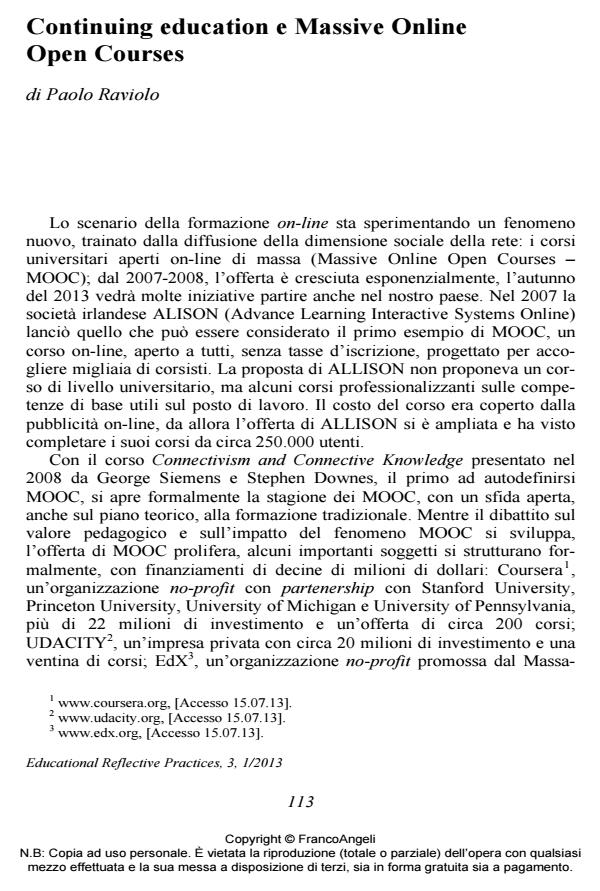Continuing education e Massive Online Open Courses
Journal title EDUCATIONAL REFLECTIVE PRACTICES
Author/s Paolo Raviolo
Publishing Year 2013 Issue 2013/1
Language English Pages 5 P. 113-117 File size 133 KB
DOI 10.3280/ERP2013-001008
DOI is like a bar code for intellectual property: to have more infomation
click here
Below, you can see the article first page
If you want to buy this article in PDF format, you can do it, following the instructions to buy download credits

FrancoAngeli is member of Publishers International Linking Association, Inc (PILA), a not-for-profit association which run the CrossRef service enabling links to and from online scholarly content.
In this short paper we face the fast developing Massive Open Online Courses (MOOC) phenomenon: college courses online, open and free of charge, which are experiencing a tumultuous development over the past two years. We present briefly the debate about the proposed pedagogical models, the key initiatives and the MOOC challenges to the established higher education institution from the point of view of student inclusion, organization and curricula accreditation.
- Emergent Strategy in Higher Education: Postmodern Digital and the Future? Mohamed Ashmel Mohamed Hashim, Issam Tlemsani, Robin Matthews, Rachel Mason-Jones, Vera Ndrecaj, in Administrative Sciences /2022 pp.196
DOI: 10.3390/admsci12040196
Paolo Raviolo, Continuing education e Massive Online Open Courses in "EDUCATIONAL REFLECTIVE PRACTICES" 1/2013, pp 113-117, DOI: 10.3280/ERP2013-001008